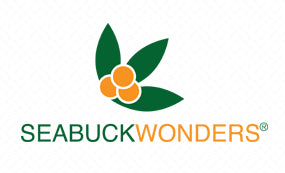How to Boost Collagen
- Home /
- Wonders of Sea Buckthorn blog
- How to Boost Collagen
By Seabuck Staff , published Aug 16, 2018
What is Collagen
You’ve heard of collagen before- it’s been a hot ingredient skincare and supplements recently. Although we may have heard of collagen, not everyone knows exactly what it does for skin. It’s so much more than a trendy beauty ingredient.
Collagen is actually a protein that is all over our bodies. Most of the time, people talk about collagen in terms of beauty related issues. The reality is that it’s everywhere in our bodies, and most of is in tendons, skin, muscles ligaments. Did you know that it even makes up one third of the protein our bodies?
What Does Collagen Do

Long chains of amino acids full of compact molecules make up Collagen. The tight configuration of cells makes collagen very strong and resilient. There are a few different types of specialized collagen that are found in the body- one of which is strong as steel!
It’s strong and flexible construction make collagen very important in many areas of the body. It covers our organs for protection and reinforces muscles on a cellular level. Collagen creates a flexible network for supporting our skin. It’s important for protecting the body, but also is crucial in the healing process of wounds.
What Happens to Collagen as we age
Sadly, like many other systems in our body, the production of collagen slows as we age. So, while there is no way to stop aging, there are some ways to invigorate collagen synthesis in the body.
Laser Peel/ Chemical Peel

Laser peels make tiny holes in the skin, forcing your skin to regenerate new skin cells as it heals. The healing process is where the generation of new collagen occurs. In the same way, chemical peels remove the outer layer of skin, which exposes new skin and encourages the healing process.
Hyaluronic acid
Hyaluronic acid doesn’t work in the same way that you might imagine. This natural ingredient works as a humectant- which binds and therefore boosts moisture in the skin. Not only is this natural polysaccharide moisturizing for the skin- it helps to boost collagen synthesis.
Aloe Drink

One study has shown that aloe vera in supplement form can actually improve facial wrinkle and elasticity. At this time, no one has done any clinical trials on the topical treatment of aloe. This study used an aloe gel drink and it showed that type 1 collagen substantially increased throughout the skin on subjects.
Omega Fatty Acids
Plant based omega 3 fatty acids (ALA), like the kind found in sea buckthorn seed oil are wonderful for skin. Plant based omega 3 itself is an antioxidant. It can boost collagen and helps support the flow of vitamins in the cells. So, not only is it great for your health- it’s great for your skin too.
Vitamin A

You can find Vitamin A in bright orange foods and dark leafy greens. It plays an important role in skin health and even skin renewal. Adding Vitamin A topically can boost levels of collagen because it’s a retinoid and also an antioxidant.
Exercise

You already know that exercise is not optional for good health. Exercise also has significant effects on the skin, sending oxygen throughout the body. Your body will release anti-stress hormones, making you feel better every day. Along with encouraging fibroblast cells to boost collagen production, using the muscles also creates a collagen boosting affect.
With a combination of the right diet, supplements and exercise, you can jumpstart the generation of collagen in your body!
References:
Hankenson, K. D., Watkins, B. A., Schoenlein, I. A., Allen, K. G., & Turek, J. J. (2000). Omega-3 fatty acids enhance ligament fibroblast collagen formation in association with changes in interleukin-6 production. Proceedings of the Society for Experimental Biology and Medicine. Society for Experimental Biology and Medicine (New York, N.Y.), 223(1), 88–95. https://doi.org/10.1046/j.1525-1373.2000.22312.x
Cho, S., Lee, S., Lee, M. J., Lee, D. H., Won, C. H., Kim, S. M., & Chung, J. H. (2009). Dietary Aloe Vera Supplementation Improves Facial Wrinkles and Elasticity and It Increases the Type I Procollagen Gene Expression in Human Skin in vivo. Annals of dermatology, 21(1), 6–11. https://doi.org/10.5021/ad.2009.21.1.6












